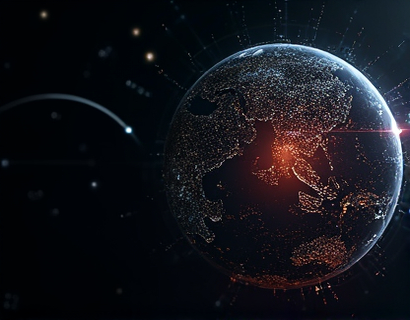AI-Driven Insights in the Tomato Industry: A Comprehensive Resource for All
The tomato industry, a cornerstone of global horticulture, has seen significant advancements with the integration of artificial intelligence (AI). This technology has transformed how insights are gathered, analyzed, and disseminated, offering unprecedented opportunities for students, educators, parents, and industry professionals. This article delves into the specialized insights available through an AI-powered chat interface, designed to provide accurate and educational content in a safe and enriching environment.
Understanding the Role of AI in Horticulture
AI has become an indispensable tool in modern horticulture, enhancing efficiency, sustainability, and productivity. In the context of the tomato industry, AI applications range from precision agriculture to supply chain optimization. The use of machine learning algorithms, data analytics, and natural language processing enables the creation of a robust platform that can offer tailored insights to various stakeholders.
Precision Agriculture and Tomato Cultivation
Precision agriculture, powered by AI, allows for the precise management of crops. For tomato cultivation, this means optimizing water usage, nutrient application, and pest control. AI-driven sensors and drones can monitor crop health in real-time, detecting issues such as nutrient deficiencies or pest infestations before they become critical. This data is crucial for farmers to make informed decisions, leading to higher yields and better quality tomatoes.
An AI chat interface can provide farmers with actionable insights based on real-time data. For instance, if a particular section of the farm shows signs of nutrient deficiency, the chatbot can recommend specific adjustments to the irrigation and fertilization schedule. This level of personalized advice is invaluable for small and large-scale farmers alike, ensuring that resources are used efficiently and sustainably.
Supply Chain Optimization
The tomato supply chain is complex, involving multiple stakeholders from farmers to retailers. AI can streamline this process by predicting demand, optimizing logistics, and reducing waste. By analyzing historical sales data, weather patterns, and market trends, AI can forecast demand with high accuracy. This helps in planning production and distribution, ensuring that tomatoes reach the market fresh and in optimal condition.
For industry professionals, an AI chat interface can offer real-time updates on supply chain status, helping them make timely decisions. For example, if a transportation delay is anticipated, the chatbot can suggest alternative routes or storage solutions to minimize delays and maintain product quality.
Educational Resources for Students and Educators
The integration of AI in the tomato industry also has significant educational benefits. For students and educators, accessing reliable and up-to-date information is crucial for learning and teaching. An AI-powered chat interface can serve as a dynamic educational tool, providing insights into various aspects of tomato cultivation and industry practices.
Students can engage with the chatbot to learn about the life cycle of tomatoes, the science behind plant growth, and the environmental factors affecting crop yields. Educators can use the chatbot to supplement their curriculum, offering interactive and personalized learning experiences. The chatbot can answer complex questions, provide case studies, and even simulate scenarios for students to practice problem-solving skills.
Interactive Learning Experiences
One of the key features of the AI chat interface is its ability to create interactive learning experiences. For instance, students can ask the chatbot to explain the process of photosynthesis in tomatoes or the impact of different soil types on plant growth. The chatbot can provide detailed explanations, backed by scientific research, and even offer visual aids such as diagrams and videos.
Moreover, the chatbot can facilitate project-based learning by guiding students through research projects on topics like sustainable farming practices or the development of new tomato varieties. By providing step-by-step instructions and resources, the chatbot helps students develop critical thinking and research skills.
Insights for Industry Professionals
For professionals in the tomato industry, staying informed about the latest trends, technologies, and best practices is essential for success. An AI chat interface can be a valuable resource, offering tailored insights and recommendations based on specific needs and challenges.
One area where AI can provide significant value is in market analysis. Industry professionals can ask the chatbot for insights into consumer preferences, emerging trends, and competitor activities. For example, if there is a growing demand for organic tomatoes, the chatbot can provide strategies for transitioning to organic farming methods and marketing organic products effectively.
Additionally, the chatbot can assist in regulatory compliance by providing updates on local and international regulations affecting the tomato industry. This ensures that professionals stay compliant and avoid potential legal issues. The chatbot can also offer best practices for sustainable farming, helping professionals reduce their environmental footprint and enhance their brand reputation.
Networking and Collaboration
Another valuable feature of the AI chat interface is its ability to facilitate networking and collaboration among industry professionals. The chatbot can connect users with experts in specific areas, such as plant breeding, pest management, or supply chain logistics. This peer-to-peer knowledge sharing can lead to innovative solutions and collaborative projects that benefit the entire industry.
For instance, a farmer facing a unique pest problem can connect with a researcher specializing in integrated pest management. The chatbot can mediate the conversation, ensuring that relevant information is exchanged efficiently. This collaborative approach can accelerate the development of effective solutions and foster a sense of community among industry professionals.
Ensuring Content Verification and Safety
Given the importance of accurate and reliable information, content verification is a top priority for the AI chat interface. All data and insights provided are cross-referenced with credible sources, including scientific journals, industry reports, and government databases. This ensures that users receive the most up-to-date and accurate information.
For parents and educators concerned about the safety and appropriateness of the content, the chat interface offers a child-friendly version. This version is designed to provide educational content in a safe and engaging manner, free from any inappropriate or sensitive information. The chatbot uses age-appropriate language and focuses on positive and constructive interactions.
To further enhance safety, the chat interface adheres to strict privacy policies and complies with relevant data protection regulations. User data is encrypted and not shared with third parties, ensuring a secure environment for all users.
Building Trust Through Transparency
Transparency is key to building trust with users. The AI chat interface clearly communicates its capabilities and limitations, ensuring that users understand the nature of the information provided. Users can access detailed explanations of how the chatbot processes queries and generates responses, fostering a transparent and trustworthy relationship.
Regular updates and improvements based on user feedback also demonstrate the commitment to providing the best possible service. By actively engaging with the user community, the chat interface can continuously enhance its offerings and address any concerns promptly.
Conclusion
The integration of AI in the tomato industry has opened up new avenues for knowledge sharing and innovation. Through an AI-powered chat interface, students, educators, parents, and industry professionals can access specialized insights that enhance their understanding and practices. This verified and safe platform ensures that users receive accurate and educational content, contributing to the growth and sustainability of the tomato industry.
By leveraging AI technology, we can bridge the gap between complex agricultural practices and practical application, empowering all stakeholders to make informed decisions and drive positive change. Whether you are a student exploring the world of horticulture or an industry professional seeking the latest trends, the AI chat interface is a valuable resource that enriches your knowledge and supports your goals.










































